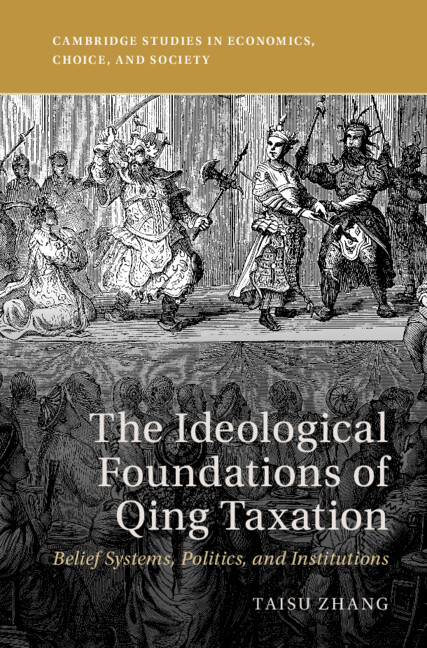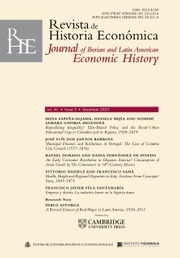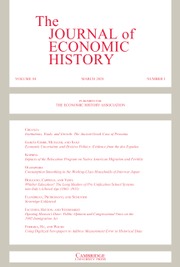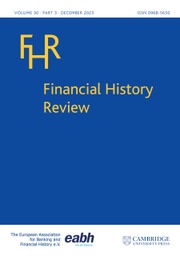The Ideological Foundations of Qing Taxation
How states develop the capacity to tax is a question of fundamental importance to political science, legal theory, economics, sociology, and history. Increasingly, scholars believe that China's relative economic decline in the 18th and 19th centuries was related to its weak fiscal institutions and limited revenue. This book argues that this fiscal weakness was fundamentally ideological in nature. Belief systems created through a confluence of traditional political ethics and the trauma of dynastic change imposed unusually deep and powerful constraints on fiscal policymaking and institutions throughout the final 250 years of China's imperial history. Through the Qing example, this book combs through several interaction dynamics between state institutions and ideologies. The latter shapes the former, but the former can also significantly reinforce the political durability of the latter. In addition to its historical analysis of ideological politics, this book makes a major contribution to the longstanding debate on Sino-European divergence.
- Provides the first somewhat comprehensive English-language survey of late imperial Chinese fiscal institutions, policy, and thought
- Offers new theoretical insights into the nature of political ideologies, the intellectual tradeoffs they must make to gain influence, and how that shapes their political life-cycles
- Constructs an ideological, rather than economically rationalist, explanation for Qing Dynasty fiscal weakness
Reviews & endorsements
‘A theoretically elegant, evidence-rich, and innovative explanation for why imperial China declined and fell. The Ideological Foundations of Qing Taxation sheds light on the roots of the ‘Great Divergence’ in economic development between China and Europe. A tremendous achievement that deserves to be widely read.’ Yuhua Wang, Professor of Government, Harvard University
‘This book is a brilliant new take on comparative economic history. Skillfully integrating institutional analysis, economics, and political thought, Zhang provides us with an erudite, deeply learned account of the Qing’s failure to expand tax capacity, drawing us into contemplation of a path not taken.’ Tom Ginsburg, Leo Spitz Distinguished Service Professor of International Law, University of Chicago
‘In this refreshing and incisive work, Taisu Zhang shows us how the weakness of the late Qing regime depended less on structural constraints than on a specific worldview about the proper role of the state. Low taxation was a deliberate choice, made in response to the presumed lessons of history, and it would have far-reaching implications. This will be of interest to anyone who wants to understand long trends in Chinese political development.’ David Stasavage, Julius Silver Professor, New York University
‘In this characteristically ambitious book, Taisu Zhang looks for obstacles on China’s path to modernization in a surprising place: tax capacity. He explains the unwillingness of China’s nineteenth-century rulers to raise taxes neither in terms of eternal cultural values nor structural factors, but rather as the outcome of a specific type of conservatism that can be explained historically.’ Michael Szonyi, Frank Wen-hsiung Wu Professor of Chinese History, Harvard University
‘Why did the Qing empire consistently under-tax its agricultural base? This book invites one to the backroom of emperors and statesmen as they debated fiscal policy, and performs a masterful dissection of the long-term ideological forces at work. A gripping read.’ He Bian, Associate Professor of History, Princeton University
‘… a compelling and nuanced exploration of the ideological and institutional forces that shaped Qing fiscal policy. … This book is a must-read for anyone interested in fiscal history, political economy, and intellectual history, as it not only deepens our understanding of Qing China but also offers important insights into the broader dynamics of statecraft and economic governance.’ Meng Zhang, Law and History Review
Product details
February 2023Adobe eBook Reader
9781009008457
0 pages
This ISBN is for an eBook version which is distributed on our behalf by a third party.
Table of Contents
- 1. A short history of qing taxation
- 2. The uses and limitations of rationalist explanations
- 3. Pre-qing fiscal regimes
- 4. The early qing paradigm shift
- 5. Mid-qing entrenchment
- 6. Late qing reforms
- 7. Theoretical implications.







